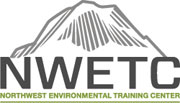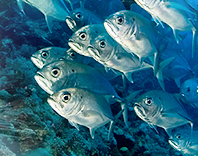This introductory course provides participants with a strong foundation of aquatic toxicology and how these concepts are applied to managing pollutants in aquatic environments. The course covers terminology, common test designs, and endpoints such as lethality and endocrine disruption. Important legacy and emerging pollutants of concern such as heavy metals, organic pesticides, PAHs, PCBs, PBDEs, pharmaceuticals, personal care products, and nanoparticles will also be presented. Fate and transport as it relates to bioavailability and pollutant partitioning in aquatic environments will be discussed. Water Quality criteria from the Clean Water Act with an emphasis on, and examples of, site specific criteria for metals using hardness correction, water effects ratio (WER), and the biotic ligand model (BLM) are also included.
After completing this course, participants will be able to:
- Apply toxicology principles to environmental issues.
- Understand how aquatic organisms are exposed to toxic chemicals.
- Identify factors affecting toxicity.
- Understand similarities and differences between the toxicity of metals and organic chemicals.
- Understand modes of action of toxic chemicals, types of effects from the molecular to the ecosystem level, and detoxification processes.
- Assess toxicity in terms of LC50 and EC50, and develop dose-response curves.
- Identify the advantages and disadvantages of various toxicity testing methods.
- Understand the scientific basis for and limitations of water quality standards.
"Allowed me to put together a lot of pieces of information and build on existing knowledge. Logical progression of material and good examples." Anonymous, Dec 2015 "The scientific knowledge and teaching methods of the instructor were fantastic. It was very interesting and collaborative which made it fun and interesting." Z. Froyland, March 2014 "Ruth explains things very well and is incredibly knowledgeable on the subject. She kept everyone interested and engaged." A. Kron, March 2014 "The course is an appropriate blend of new methods and technology with longstanding concepts and standards. The approach of instruction engages attendees to use analytical tools introduced in problem solving then evaluates the value of the conclusion." B. Wanstall, April 2013 |
*Reduced tuition is available for Native American tribes, government employees, nonprofits, students and AFS, NAEP, NEBC, TAEP members.
You may register online or by calling the Northwest Environmental Training Center at (425) 270-3274. Online registration is strongly encouraged.
Please wait to receive a course confirmation email, roughly one month prior to the class, before making any travel arrangements.








